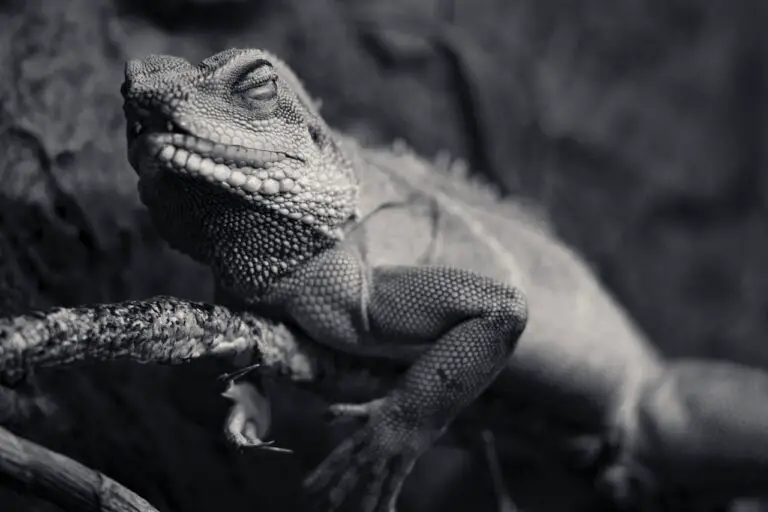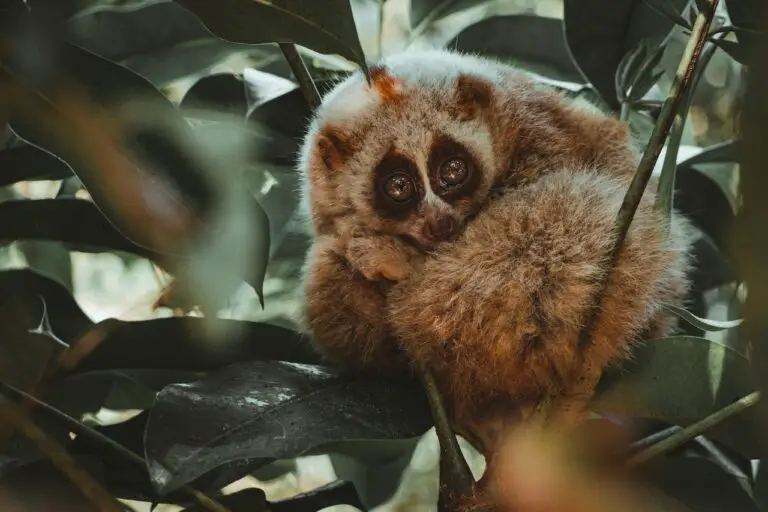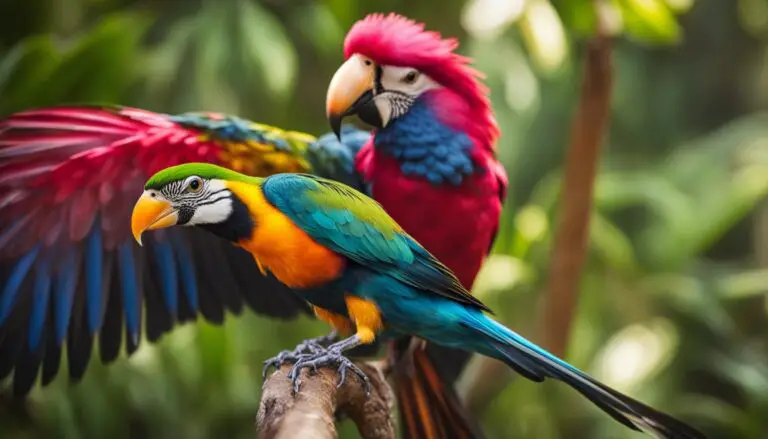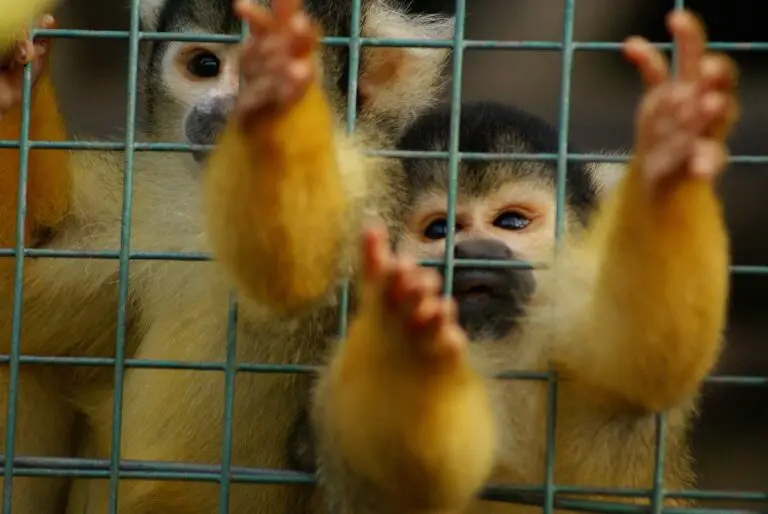Discover The Top 10 Most Popular Exotic Pets [+ Characteristics]
Exotic pets are a growing trend, with many people opting for non-traditional pets that are unique and fascinating.
While some exotic pets are illegal to own, there are plenty of great options that are perfectly legal and can make great companions.
In this article, we’ll explore the top 10 most popular exotic pets and why they make great additions to any home.
What Are Exotic Pets?
Exotic pets are non-traditional pets that are not commonly kept as household pets.
They include a wide variety of animals, from reptiles and insects to mammals and birds.
Some of the most popular exotic pets are reptiles, such as bearded dragons and snakes, while others are mammals, such as hedgehogs and chinchillas.
Exotic pets require specific care and attention, so I’d recommend doing your research before getting one.
Factors to Consider Before Getting an Exotic Pet
Before getting an exotic pet, it’s vital to consider several factors.
These include:
- Legal requirements – Some exotic pets are illegal to own in certain states or countries, so it’s essential to check local laws before getting one.
- Cost – Exotic pets can be expensive to purchase and care for. Thus, you need to consider the cost before getting one.
- Time commitment – Exotic pets require specific care and attention, so it’s essential to consider the time commitment before getting one.
- Health risks – Exotic pets can carry diseases that can be transmitted to humans. That’s why you need to consider the health risks before getting one.
Top 10 Most Popular Exotic Pets
1. Bearded Dragon
- Appearance and characteristics:
Bearded dragons are medium-sized lizards that are known for their unique appearance and calm temperament. They have a flat body, spiky beard, and long tail, and come in a variety of colors. - Housing and care requirements:
Bearded dragons require a terrarium with specific heating and lighting requirements, as well as a substrate for them to burrow in. They also need a basking spot and access to fresh water. - Diet and nutrition:
Bearded dragons are omnivores that require a diet of insects and vegetables. They should be fed a variety of foods to ensure that they receive the necessary nutrients.
Bearded dragons are a type of lizard that are native to Australia.
They are popular exotic pets because they are relatively easy to care for and have a docile temperament.
Bearded dragons require a terrarium with specific heating and lighting requirements, as well as a diet that includes live insects and vegetables.
2. Hedgehog
- Appearance and characteristics:
Hedgehogs are small, spiny mammals that are known for their unique appearance and nocturnal habits. They have a round body covered in spines, and come in a variety of colors. - Housing and care requirements:
Hedgehogs require a cage with specific bedding and temperature requirements, as well as a wheel for exercise. They also need access to fresh water and a hiding spot. - Diet and nutrition:
Hedgehogs are omnivores that require a diet of insects and vegetables. They should be fed high-quality commercial hedgehog food, as well as occasional treats like mealworms.
Hedgehogs are small and cute mammals that are native to Africa and Europe.
They are popular exotic pets because they are cute and relatively easy to care for.
Hedgehogs require a cage with specific bedding and diet requirements, as well as regular handling to prevent them from becoming aggressive.
3. Sugar Glider
- Appearance and characteristics:
Sugar gliders are small, nocturnal marsupials that are known for their unique appearance and social nature. They have a gliding membrane between their front and back legs, and come in a variety of colors. - Housing and care requirements:
Sugar gliders require a cage with specific bedding and temperature requirements, as well as toys and climbing structures for exercise. They also need access to fresh water and a hiding spot. - Diet and nutrition:
Sugar gliders are omnivores that require a diet of insects, fruits, and vegetables. They should be fed a high-quality commercial sugar glider food, as well as occasional treats like mealworms.
Sugar gliders are small marsupials that are native to Australia and Indonesia.
They are popular exotic pets because they are social and bond closely with their owners.
Sugar gliders require a cage with specific diet and exercise requirements, as well as regular handling to prevent them from becoming depressed.
4. Chinchilla
- Appearance and characteristics:
Chinchillas are small, furry rodents that are known for their soft fur and playful personalities. They have a round body, large ears, and long tail, and come in a variety of colors. - Housing and care requirements:
Chinchillas require a cage with specific bedding and temperature requirements, as well as toys and climbing structures for exercise. They also need access to fresh water and a hiding spot. - Diet and nutrition:
Chinchillas are herbivores that require a diet of hay, pellets, and fresh vegetables. They should be fed high-quality chinchilla food, as well as occasional treats like dried fruit.
Chinchillas are small rodents that are native to the Andes Mountains in South America.
They are popular exotic pets because they are cute and relatively easy to care for.
Chinchillas require a cage with specific bedding and diet requirements, so keep that in mind.
5. Ferret
- Appearance and characteristics:
Ferrets are domesticated mammals that are known for their playful and affectionate personalities. They have a long, slender body, short legs, and come in a variety of colors. - Housing and care requirements:
Ferrets require a cage with specific bedding and diet requirements, as well as regular handling to prevent them from becoming bored. They also need access to fresh water and toys for exercise. - Diet and nutrition:
Ferrets are obligate carnivores that require a diet of meat. They should be fed high-quality ferret food, as well as occasional treats like cooked egg.
Ferrets are domesticated mammals that are popular exotic pets because they are playful and affectionate.
They require a cage with specific bedding and diet requirements, as well as regular handling to prevent them from becoming bored.
6. Tarantula
- Appearance and characteristics:
Tarantulas are a type of spider that are known for their unique appearance and docile temperament. They have a round body covered in hair, and come in a variety of colors. - Housing and care requirements:
Tarantulas require a terrarium with specific temperature and humidity requirements, as well as a substrate for burrowing. They also need access to fresh water and hiding spots. - Diet and nutrition:
Tarantulas are carnivores that feed on insects and other small prey. They should be fed a variety of live insects, such as crickets and mealworms.
Tarantulas are a type of spider that are popular exotic pets because of their unique appearance.
They require a terrarium with specific heating and humidity requirements, as well as a diet of live insects.
7. Snake
- Appearance and characteristics:
Snakes come in a variety of shapes, sizes, and colors, but they all have elongated bodies and lack limbs. They are carnivores and use their sharp teeth and powerful jaws to capture and consume prey. - Housing and care requirements:
Snakes require a terrarium with specific temperature and humidity requirements, as well as hiding spots and substrate for burrowing. They also need access to fresh water and appropriate lighting. - Diet and nutrition:
Snakes are carnivores that feed on rodents, birds, and other small prey. They should be fed appropriately sized prey once a week.
Snakes are popular exotic pets because of their fascinating behaviors and unique appearance.
They require a terrarium with specific heating and lighting requirements, as well as a diet that includes live or frozen rodents.
8. Skunk
- Appearance and characteristics:
Skunks are known for their distinct black and white striped fur and their ability to spray a foul-smelling liquid as a defense mechanism. They are omnivores and have a pointed snout and small, sharp claws. - Housing and care requirements:
Skunks can be kept as pets but require a large, secure enclosure with hiding spots and toys for enrichment. They also need regular veterinary check-ups and access to fresh water and appropriate food. - Diet and nutrition:
Skunks are omnivores that require a diet of both plant and animal-based foods. They should be fed a high-quality commercial skunk food, as well as fresh fruits, vegetables, and occasional treats like eggs or chicken.
Skunks are domesticated mammals that are popular exotic pets because of their playful and affectionate personalities.
They require a cage with specific diet and bedding requirements, as well as regular handling to prevent them from becoming anxious.
9. Capybara
- Appearance and characteristics:
Capybaras are the largest rodents in the world and have a stocky, barrel-shaped body with short legs and a broad head. They are semi-aquatic and are known for their social nature and love of water. - Housing and care requirements:
Capybaras require a large, secure enclosure with access to water for swimming and a dry area for rest. They also need access to appropriate food and regular veterinary check-ups. - Diet and nutrition:
Capybaras are herbivores that require a diet of grasses, hay, and vegetables. They should be fed a high-fiber diet to support their digestive system.
Capybaras are large rodents that are native to South America.
They are popular exotic pets because of their social nature and affectionate personalities.
Capybaras require a large enclosure with access to water for swimming and a diet of grasses and vegetables.
10. Kinkajou
- Appearance and characteristics:
Kinkajous are small, nocturnal mammals with long, prehensile tails and sharp claws. They are arboreal and have a pointed snout and large, round ears. - Housing and care requirements:
Kinkajous require a large, secure enclosure with climbing structures and hiding spots. They also need access to fresh water and a variety of foods. - Diet and nutrition:
Kinkajous are omnivores that require a diet of fruits, vegetables, and insects. They should be fed a variety of foods to ensure that they receive the necessary nutrients.
Kinkajous are small mammals that are native to Central and South America.
They are popular exotic pets because of their playful and affectionate personalities.
Kinkajous require a cage with specific diet and bedding requirements, as well as regular handling to prevent them from becoming aggressive.
Conclusion
Exotic pets can make great companions for those willing to take the needed time and effort to care for them properly.
While they require specific care and attention, the unique personalities and fascinating behaviors of exotic pets can be well worth the effort.
Before getting an exotic pet, it’s essential to consider the legal requirements, cost, time commitment, and health risks involved.
FAQs
What are the pros and cons of owning an exotic pet?
Pros of owning an exotic pet:
- Exotic pets can be unique and fascinating to own and observe.
- Exotic pets can provide a sense of companionship and joy.
- Exotic pets can offer an opportunity to learn about and appreciate different types of animals and their behaviors.
Cons of owning an exotic pet:
- Exotic pets can be expensive to purchase and maintain.
- Exotic pets can be difficult to care for and require specialized knowledge and skills.
- Exotic pets can pose a risk to humans and other animals if not properly trained or contained.
Three important things to know about the pros and cons of owning an exotic pet:
- Exotic pets require a significant time investment to properly care for and maintain.
- Some exotic pets can carry diseases that can be transmitted to humans and other animals.
- Exotic pets may have a shorter lifespan than traditional pets and may require planning for long-term care.
What are the potential dangers of owning an exotic pet?
Owning an exotic pet comes with certain risks and potential dangers. Some of the most common dangers include:
- Physical harm – Some exotic pets can be dangerous if they feel threatened or are not properly trained or handled.
- Health risks – Exotic pets can carry diseases that can be transmitted to humans and other animals.
- Legal issues – Some exotic pets are illegal to own in certain areas, and owning them can result in fines, confiscation, and even criminal charges.
Three important things to know about the potential dangers of owning an exotic pet:
- Exotic pets require proper training and care to ensure the safety of both the animal and its owners.
- Some exotic pets can have unpredictable behaviors that can pose a risk to themselves and others.
- It’s important to have a plan in place for long-term care and housing of the exotic pet in case the owner is no longer able to care for them.
What are some common health issues in exotic pets?
Common health issues in exotic pets vary depending on the species, but some issues to watch for include respiratory infections, skin conditions, and metabolic bone disease.
Many exotic pets are prone to stress-related illnesses, so it’s important to provide them with a comfortable and stimulating environment.
How do I properly care for an exotic pet?
Proper care for an exotic pet varies depending on the species, but some general tips include:
- Providing a clean and comfortable living environment
- Feeding a balanced diet
- Providing plenty of opportunities for exercise and mental stimulation
- Scheduling regular check-ups with a veterinarian who specializes in exotic pets
Where can I find a reputable breeder or seller of exotic pets?
It’s important to do your research and find a reputable breeder or seller when purchasing an exotic pet.
You can ask for recommendations from other pet owners, or search for breeders/sellers online and read reviews from previous customers.
It’s also important to ask for documentation of the animal’s health history and any necessary permits or licenses.
Peter Stones is the founder of Exotic Pets Place, the leading online resource for exotic pet care information.
With over 10 years of hands-on exotic pet ownership experience, he is deeply passionate about sharing his expertise to help others properly care for their unusual pets.
When he's not writing extensively researched articles or connecting with fellow exotic pet enthusiasts worldwide, you can find Peter at home tending to his own beloved menagerie of exotic animals.

![Discover The Top 10 Most Popular Exotic Pets [+ Characteristics], a bearded dragon](https://exoticpetsplace.com/wp-content/uploads/2023/05/Discover-The-Top-10-Most-Popular-Exotic-Pets-Characteristics-a-bearded-dragon.jpg)




![Exotic Pet Friendly Cities The [Top 10] Worldwide Destinations, Sydney Opera House](https://exoticpetsplace.com/wp-content/uploads/2023/05/Exotic-Pet-Friendly-Cities-The-Top-10-Worldwide-Destinations-Sydney-Opera-House-768x512.jpg)
